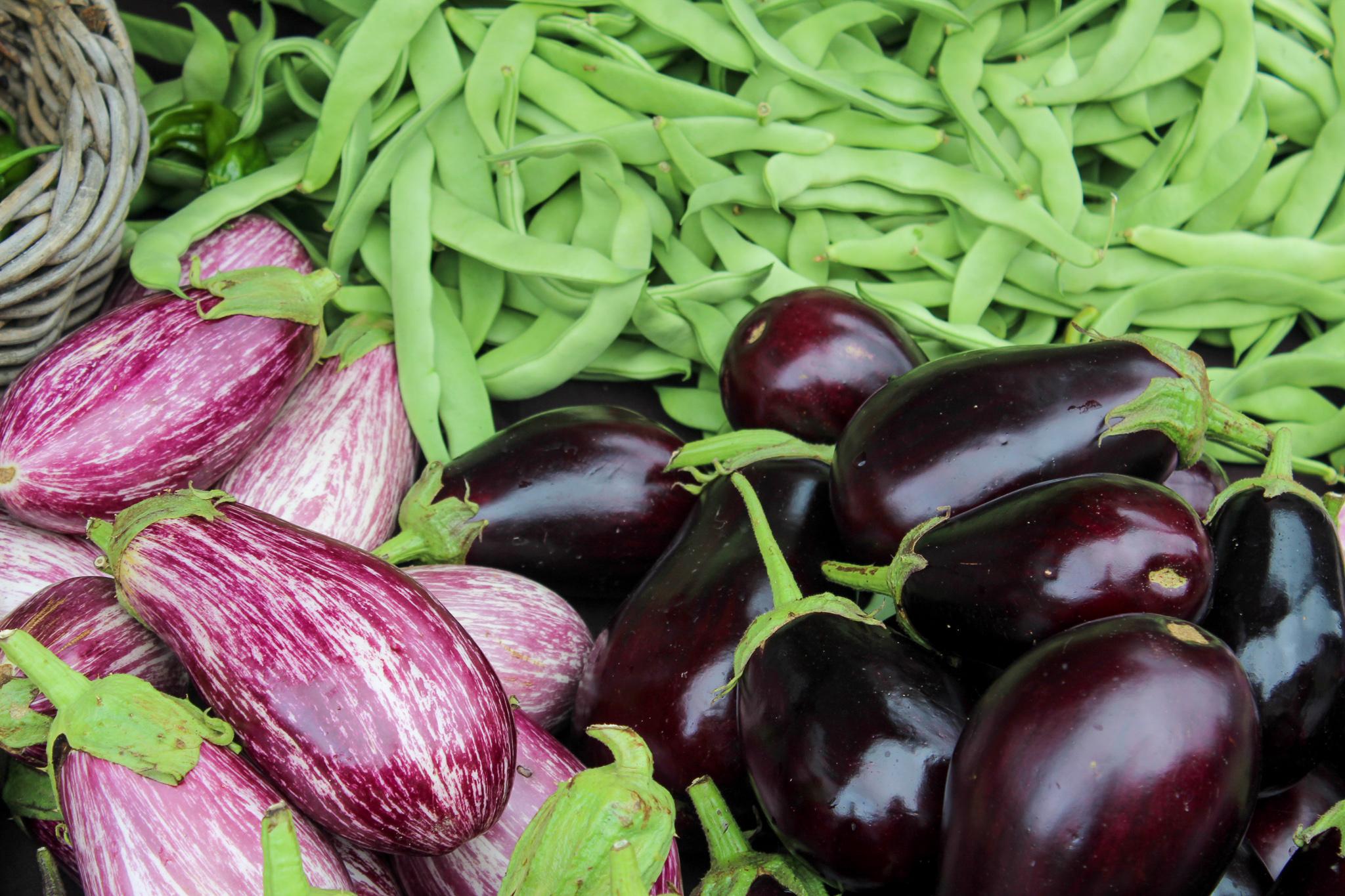The Intervale’s beautiful early-fall landscape stretched out before me as my car rumbled down the dirt road. As a junior at UVM—and a recent addition to the NOFA family as a communications and marketing intern—I wasn’t sure what to expect at the rally to Keep the Soil in Organic.
The passion was palpable, and the crowd of roughly 70 was led by two towering sun and moon puppets that bore a banner declaring “It’s About Soil,” as the Brazilian drumming ensemble Sambatucada sustained the energy with their infectious rhythms. Tractors trailed behind, carrying their respective organic farmers.
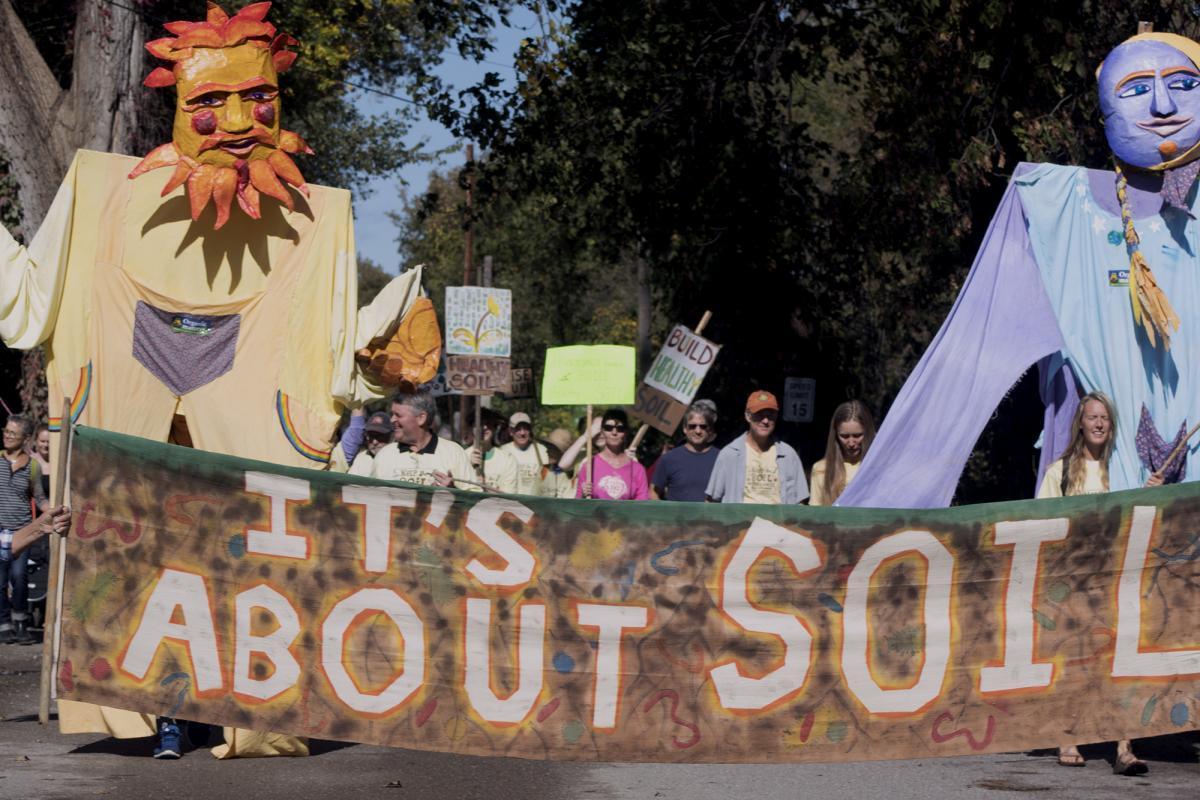
My knowledge of the hydroponics’ role in agriculture was minimal before I arrived, but my information gaps were quickly supplemented by the lineup of speakers that took the stage. Among them were Lieutenant Governor David Zuckerman (pictured below) and the co-founder of Keep the Soil in Organic, organic tomato farmer Dave Chapman, among many others.
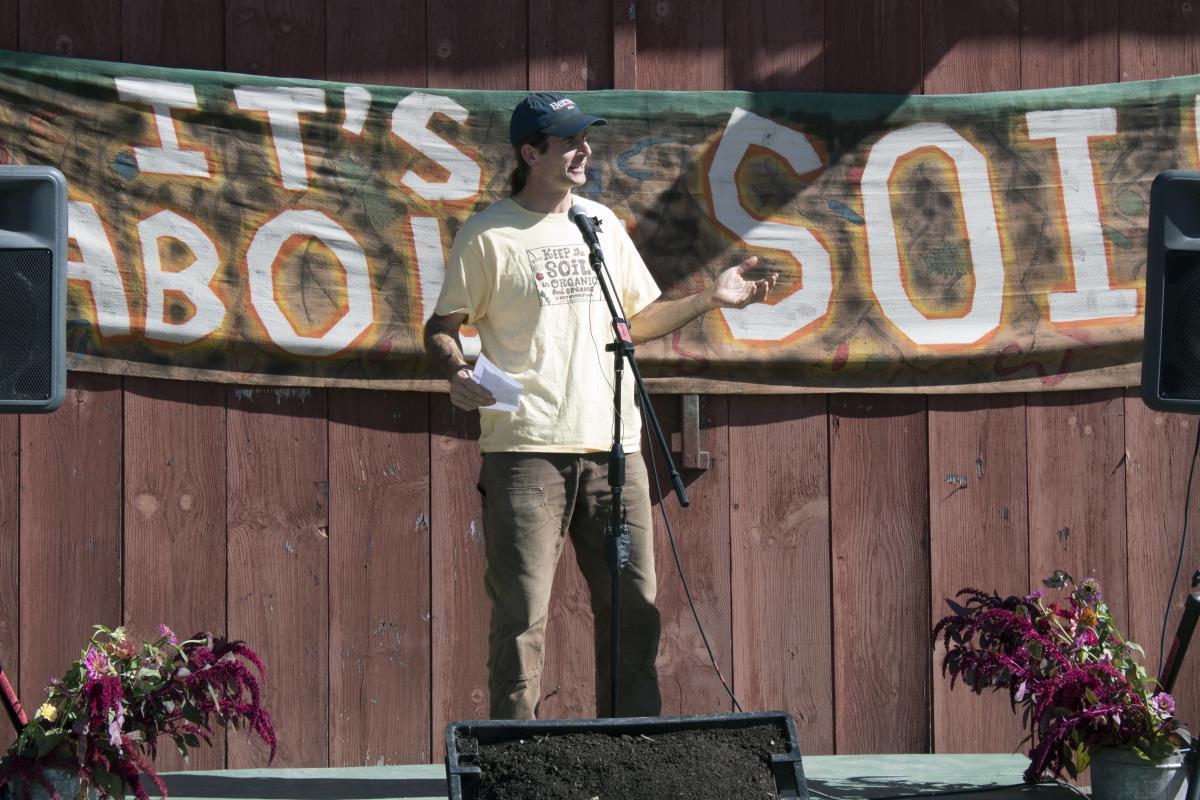
One of the most interesting ideas illustrated by the speakers compared the organic movement to a winding road, and one that has split into a fork—one direction promoting the corporate ideals of the National Organic Program (NOP), which is currently allowing hydroponics, and one direction supporting the movement’s grassroots origins with small-scale soil-based farms.
Dave Chapman (pictured below) has a great term for large hydroponic producers who’ve been certified as organic: “fauxganic.”
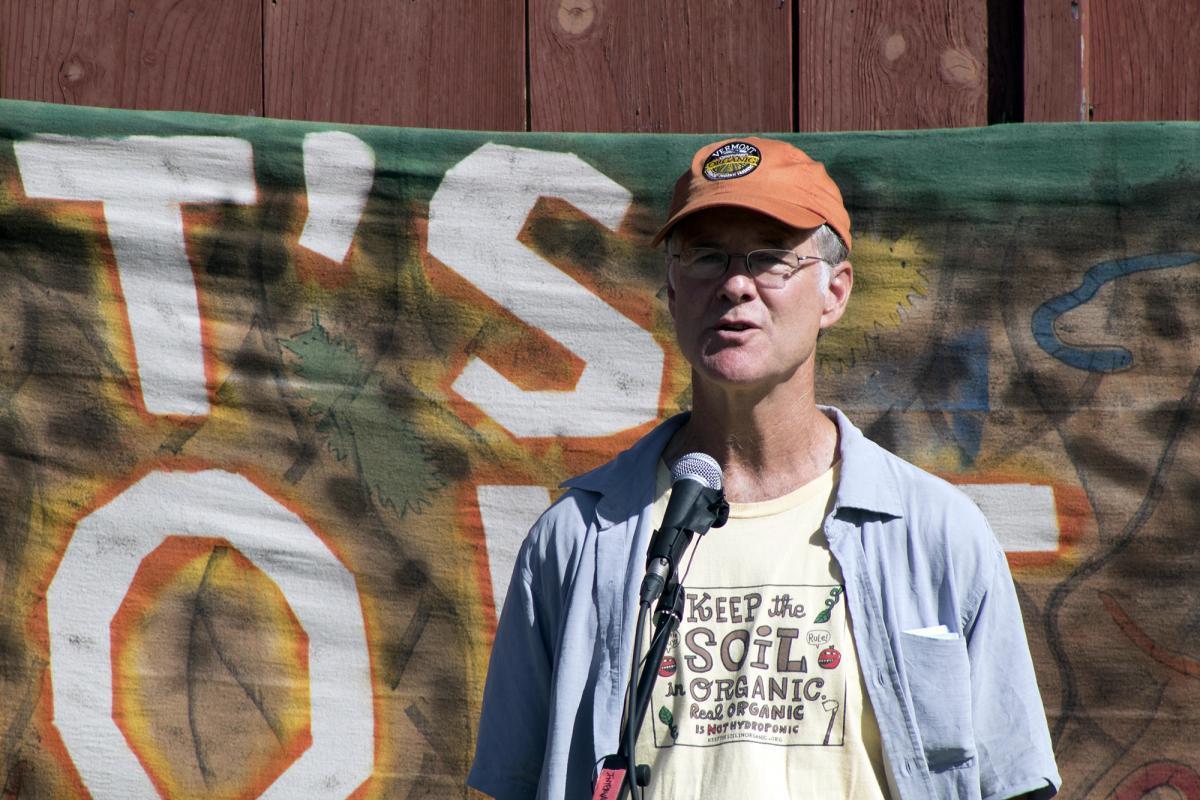
With each speaker that took the stage, I learned more about how hydroponics threaten the accepted definition of organic. Since I have only limited firsthand experience on a farm, it was helpful to learn which specific types of produce are most frequently grown hydroponically—tomatoes, berries, and peppers were highlighted as the main products.
I was also shocked by the effects that new standards for certification would engender, especially after hearing the statistic that 75 percent of organic eggs would lose their certification if confined animal feeding operations were excluded from the label. The knowledge I gained just by listening to some of the state’s most prominent movement leaders was empowering.
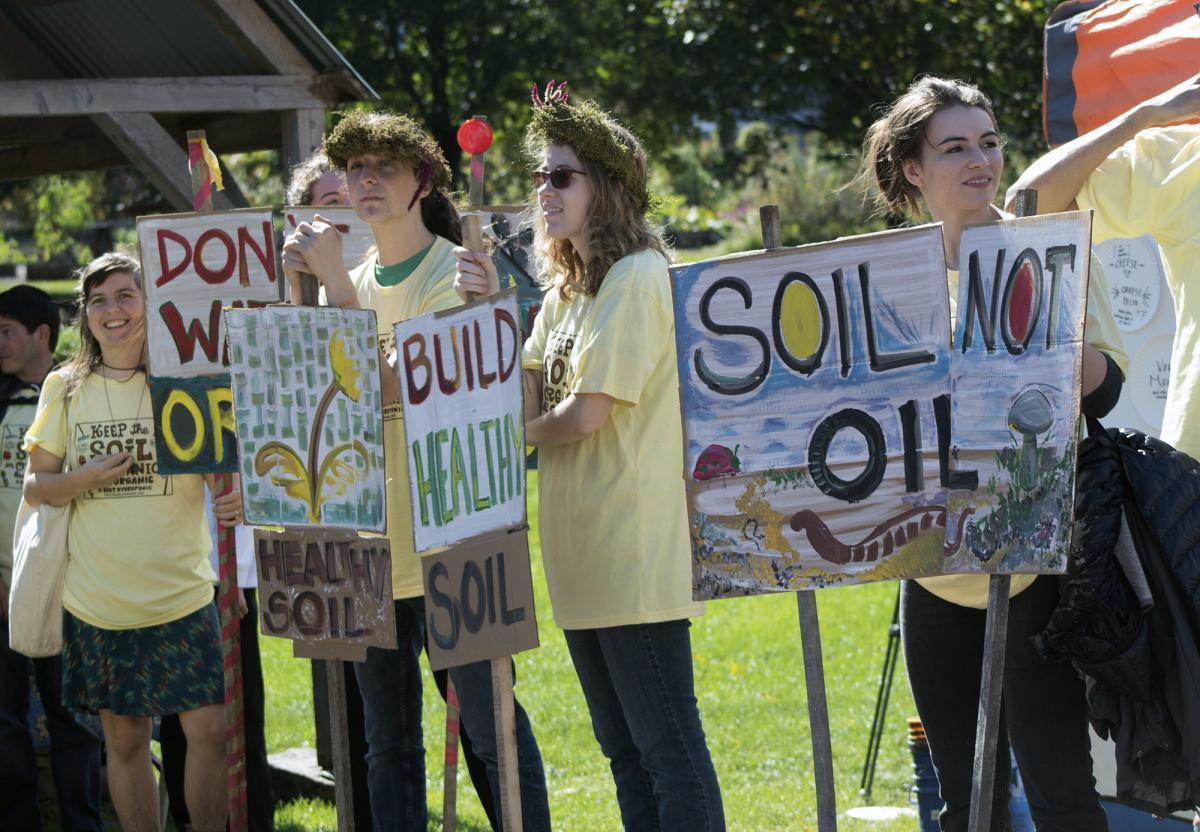
As the speakers wrapped up, the whole rally chanted and folk musician Rachel Eddy took the stage with her fiddle. People lined up for warm crepes from Skinny Pancake’s stand, and friends and coworkers laughed and enjoyed the foot-tapping tunes.
It was the perfect end to a positive protest, and I feel grateful to have been part of it.

